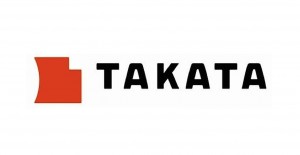
A new report suggests that Takata may be forced to recall millions more airbags. The company's already recalled 24 million units.
The embattled Japanese supplier Takata may soon order the recall of tens of millions more vehicles due to potentially defective airbag inflators, according to a new report.
The move comes as pressure mounts on Takata to recall all of its airbag systems using ammonium nitrate inflators. A recent study warned that the explosive chemical may grow unstable over time, one of the apparent reasons why hundreds of Takata airbags have misfired, a problem now linked to at least 11 deaths.
But whether such a move by Takata would satisfy the company’s critics is unclear. Some have called on the supplier to recall nearly 80 million airbag systems. Takata has already recalled more than 24 million cars, making it the largest safety-related recall in automotive history.
A spokesman for the National Highway Traffic Safety Administration said the agency is reviewing the findings of three separate investigations into the Takata air-bag ruptures,” according to a report in the Wall Street Journal. “The agency will take all appropriate actions to make sure air bags in Americans’ vehicles are safe.”
(Feds may recall up to 85 million more Takata airbags. For more, Click Here.)
Exactly how many vehicles the new recall reported by the Journal would cover is uncertain. Many of the older vehicles covered by the existing Takata recall had just one of the at-risk airbags onboard. But newer vehicles might use two or more of the suspect devices.
The problem centers around Takata airbag inflators that have been shown to occasionally misfire when triggered by a crash. If that happens, they can inflate over-aggressively, sending metal and plastic shrapnel spewing into the passenger compartment. More than 100 injuries and 11 deaths have been linked to the defect, including a 17-year Texas high school student killed in late March when her car was involved in what should have been a relatively minor collision.
Initially, it was believed the problem was caused by a manufacturing defect at two North American plants that made the Takata inflators unusually vulnerable to excess moisture. At first, only a small number of vehicles were recalled, and only those operating in areas with high humidity, such as Southern Florida. But, after misfires were reported in other parts of the country, NHTSA ordered a nationwide recall.
(For more on the latest fatal crash, Click Here.)
Takata initially resisted that move, only caving in after senior executives were put under the microscope during Congressional hearings and NHTSA announced hefty fines. The supplier also agreed to reform its safety processes, a move that could spare it from additional fines.
Meanwhile, many of the 14 carmakers who use Takata airbag systems came together to empanel a research program aimed at precisely determining what can cause the inflator malfunction. While humidity was listed as one of the problems, the researchers also pointed to the long-term instability inherent in ammonium nitrate, a chemical that can break down over time.
(How can NHTSA improve the recall response rate? Click Here for the story.)
For its part, Takata told the Journal, it is working with NHTSA “to develop long-term, orderly solutions to these important safety issues.”
